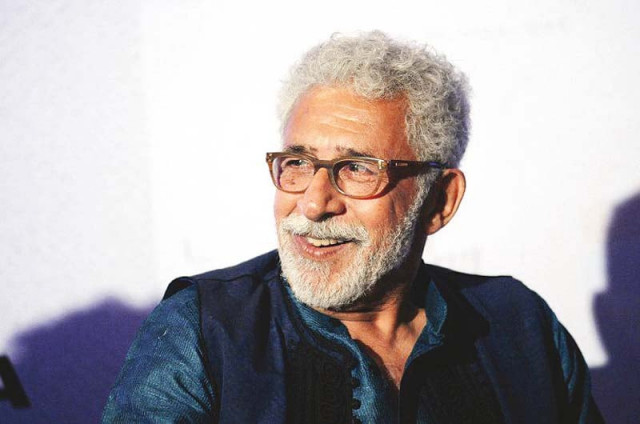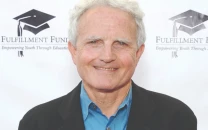There’s no new wave in Indian cinema: Shah
Bollywood veteran says greed caused film-makers such as Anurag Kashyap to fail

Shah said he became the poster boy of Parallel Cinema because he charged little money. PHOTO: FILE
Shah said Kashyap’s doing away with the kind of cinema he believes in caused the failure of his mega-budget film, Bombay Velvet. Shah feels the Kashyap who rose to fame with the much-acclaimed Black Friday had gathered for himself a devoted audience base.
Asked if it was the pressure that drove Kashyap to make the Ranbir Kapoor-Anushka Sharma starrer, the actor said, “Not pressure ... it was greed that drove Anurag Kashyap to make that wretched film Bombay Velvet. It has happened to them all. They claim they need a wider audience. Why do you suddenly need a wider audience? When you started off you didn’t need a wider audience. You were catering to the niche. Now why do you need a wider audience and a bigger budget?” Shah was quoted by the Press Trust of India as saying.
Actor Naseeruddin Shah breaks it down

The 66-year-old, however, did not take it all away from the Gangs of Wasseypur creator. Citing examples of film-makers such as Saeed Akhtar Mirza, Ketan Mehta, Shyam Benegal and Govind Nihalani, who have had an approach similar to that of Kashyap, Shah said the debut films of all these directors were top-of-the-line. “All these guys’ first film has been their best. Whether it is Saeed, Ketan, Anurag, Shyam or Govind, because they were strapped for funds, had fire in their bellies and it meant the world to them to make a movie,” shared Shah. “However, once those movies got acclaim, they started believing they are masters and you can see the results. Apart from Shyam, I don’t think anyone has retained the quality. These film-makers are dying to make movies with popular actors and that is the truth.”
Shah, who will be next seen in Waiting opposite Bollywood actor Kalki Koechlin, dismissed the so-called new wave in Indian cinema, deeming it a term coined by the media.
“There is no wave; there are a few guys who are trying to make films they believe in as they were in the 70s. The ratio is as small as it was then. Nothing has changed and nothing is going to change,” added Shah.
He, however, concurred with the fact that there still are few film-makers who are trying to make movies they believe in, but they are too few to put up a fight with the commercial potboilers. “There will always be a few crazies who will want to make their kind of movies. May their breed survive but they will always be in minority.”
Shah, who became the poster boy of Parallel Cinema in the 70s by starring in films such as Nishant, Manthan, Bhumika and Junoon among others, admitted he was not offered these projects on the basis of his credibility but merely because he came cheap. “I kept getting these movies because they could not afford any popular actor. I was the most popular among the new wave of actors. I was not cast because they had high regard for me. I was always cast because I was available cheap,” he laughed.
Published in The Express Tribune, May 25th, 2016.
Like Life & Style on Facebook, follow @ETLifeandStyle on Twitter for the latest in fashion, gossip and entertainment.



















COMMENTS
Comments are moderated and generally will be posted if they are on-topic and not abusive.
For more information, please see our Comments FAQ